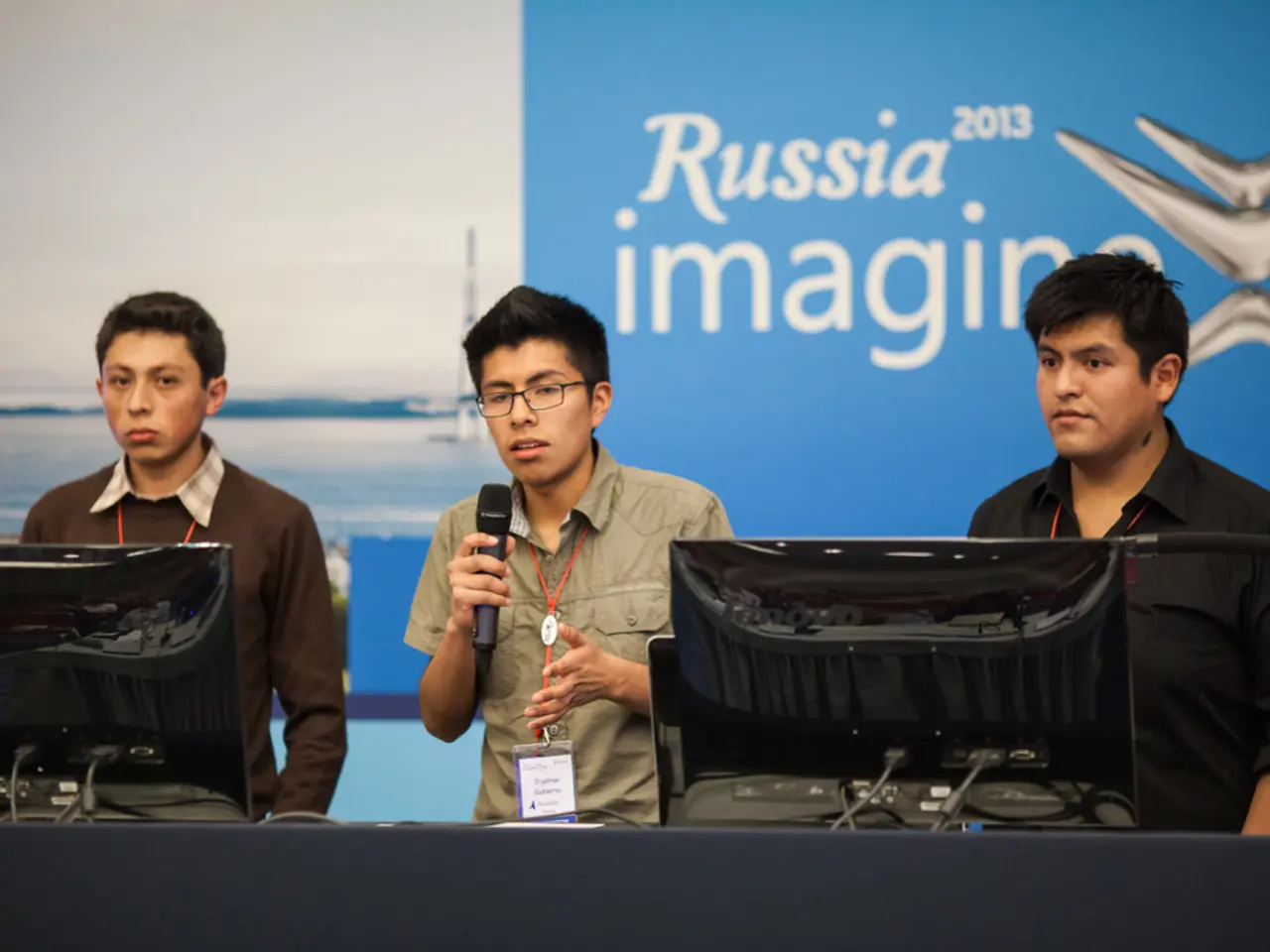Inquiry by China Regarding Security Measures in Nvidia's AI Processors
In the ongoing geopolitical race between the U.S. and China, the sale of Nvidia's H20 AI chips has become a contentious issue. Chinese authorities have raised concerns about potential vulnerabilities in the H20 chips, such as user data exposure, hidden tracking functions, location tracking, and remote shutdown capabilities[1][2].
The H20 GPU is a scaled-down version of Nvidia's H100, specifically designed for the Chinese market. Initially, U.S. export restrictions on more powerful AI processors were in place, but the sale of H20 chips was allowed after the restrictions were lifted in April 2025[3]. However, Chinese regulators remain wary, especially due to U.S. legislative proposals that suggest export-restricted AI accelerators like H100, H200, and related chips should include tracking and location-check features[1]. This has fueled Chinese suspicions that the hardware might contain backdoors or capabilities that could compromise personal or corporate data.
Peking is pushing back against Washington's restrictions on chip sales, aiming for greater independence through its own chip development[4]. The Cyberspace Administration of China (CAC) summoned Nvidia representatives to explain these alleged risks and provide documentation regarding the chips' security[1][2].
The U.S. government is trying to limit China's access to powerful AI hardware, citing national security concerns[5]. The H20 chips, while compliant with previous U.S. export controls and not supposed to have tracking features onboard, have raised questions about their security due to the potential for hidden vulnerabilities or backdoors[1].
In summary, while the H20 chip itself is intended to comply with export controls and not have tracking features, Chinese regulators suspect it might have hidden vulnerabilities or backdoors. This has led to calls for Nvidia to clarify and prove the chip's security[1][2]. The ongoing controversy underscores the complexities and tensions in the tech conflict between the U.S. and China.
References: [1] Reuters. (2025). China questions Nvidia over potential security risks in AI chips sale. Reuters. [Online]. Available: https://www.reuters.com/technology/china-questions-nvidia-over-potential-security-risks-ai-chips-sale-2025-04-01/
[2] South China Morning Post. (2025). China accuses Nvidia of security risks in AI chip sale. South China Morning Post. [Online]. Available: https://www.scmp.com/tech/policy/article/3131857/china-accuses-nvidia-security-risks-ai-chip-sale-escalating-tech-conflict
[3] The Verge. (2025). U.S. lifts ban on Nvidia's H20 AI chip sales to China. The Verge. [Online]. Available: https://www.theverge.com/2025/04/01/22952304/us-lifts-ban-nvidia-h20-ai-chip-sales-to-china
[4] Financial Times. (2025). China pushes back against US restrictions on chip sales. Financial Times. [Online]. Available: https://www.ft.com/content/1e441174-1b9a-4652-814a-d8e457b36a6c
[5] CNBC. (2025). US tightens restrictions on AI chip sales to China. CNBC. [Online]. Available: https://www.cnbc.com/2025/04/01/us-tightens-restrictions-on-ai-chip-sales-to-china.html
The sale of Nvidia's H20 AI chips to China, despite complying with previous U.S. export controls, has sparked concerns about potential hidden vulnerabilities or backdoors due to the presence of artificial-intelligence technology. In reaction to U.S. legislative proposals and Washington's restrictions on chip sales, Chinese regulators have intensified their scrutiny over the security of these chips.




